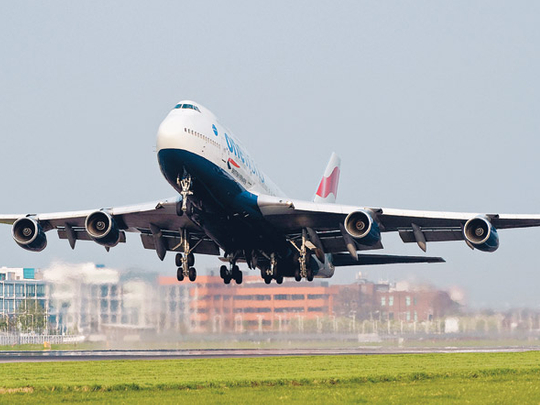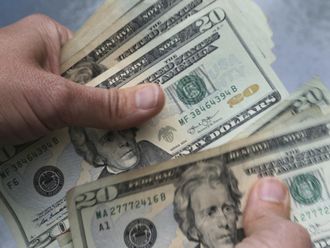
New York: US airline passengers may face more flight cancellations as carriers such as Delta Air Lines and Southwest Airlines seek to avoid fines for keeping planes waiting on the tarmac longer than three hours.
A rule by Transportation Secretary Ray LaHood, taking effect April 29, would impose fines as high as $27,500 (Dh100,989) for each customer when an airline fails to free passengers after three hours.
The Air Transport Association said carriers would cancel flights rather than breach the limit, and a travel group said the number of flights scrapped in New York may rise as much as 15 per cent.
"Cancellations could go up, but it's not a bad thing," said Kate Hanni, who lobbied for the rule after being trapped for nine hours in 2006 on an American Airlines plane in Austin, Texas.
"The cancellations are going to prevent people from being stuck on the tarmac."
Fines
AMR Corporation's American and JetBlue Airways kept planes on the ground for as long as ten-and-a-half hours in late 2006 and early 2007, fuelling passenger protests.
Continental Airlines and two regional partners were fined $175,000 in November for holding 47 customers on a plane overnight at Rochester, Minnesota, last year.
The fine could have been as much as $1.29 million under the new restrictions.
Carriers including Delta and American said they planned to limit tarmac delays, after saying for months they needed flexibility to keep flights on the ground to prevent broader disruptions to their operations.
"We will do our absolute best to comply," said the Washington Air Transport Association trade group spokesman David Castelveter.
"This will result in unintended consequences — more cancelled flights, and more inconvenience for customers," Castelveter said.
When an airline cancels a flight, passengers would be in the airport terminal with access to alternatives, LaHood said.
Passengers "can rent a car and drive to wherever they need to go, or they can rebook their flight, or they can go to a motel," LaHood said in an interview.
"None of that can happen while they're sitting cooped up on an aeroplane."
The rule, which applies only to domestic flights, lets pilots cite safety or security concerns to keep planes on the ground more than three hours.
Air-traffic controllers also can waive the three-hour limit if returning a plane to the gate would disrupt airport operations.
The rule requires airlines to provide water and snacks for two- to three-hour delays and assure the plane's bathrooms are functioning.












